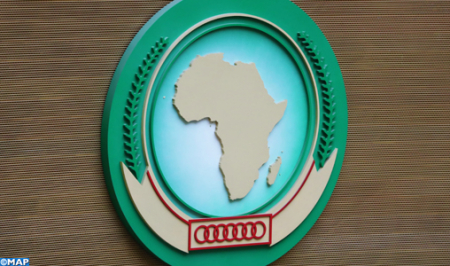39th Ordinary Session of AU Executive Council Kicks Off with Participation of Morocco
The 39th ordinary session of the Executive Council of the African Union (AU) started on Thursday in Addis Ababa with the participation of Morocco. The Kingdom is represented by a delegation led by the Ambassador Director General of Bilateral Relations and Regional Affairs at the Ministry of Foreign Affairs, Fouad Yazourh, and which includes also the Ambassador Permanent representative of the Kingdom to the AU and UNECA, Mohamed Arrouchi, and the Ambassador Director General of the Moroccan International Cooperation Agency (AMCI), Mohamed Methqal. The 39th Ordinary Session of the Executive Council will consider the draft agenda, draft decisions and declarations with appropriate recommendations for consideration by the Heads of State and Government during their 3rd Mid-Year Coordination Meeting between the African Union, the RECS and RMS, scheduled to take place on 16 October 2021. For two days, the Ministers of Foreign Affairs/External Relations and other ministers or authorities duly designated will deliberate on the different items on their agenda including; consideration of the report of the 42nd Ordinary Session of the PRC, report on the operationalization of the Africa CDC, and concept note and the roadmap on the theme of the Year 2022 on Nutrition and Food Security. The Session also will consider reports of Committees of the Executive Council and Ad Hoc Committees, report of the Joint-Sitting of the Ministerial Committee on Scale of Assessment and Contributions and the Committee of F15, report of the Ministerial Committee on African Candidatures within the International System, and report of the Ministerial Follow up Committee on the Implementation of Agenda 2063. Among the high moments during the Executive Council Session will be the election and appointment of the two Commissioners of the AU Commission, the President and Vice President of the Pan African University (PAU), four Members of the African Commission on Human and Peoples’ Rights, and four Members of the African Union Advisory Board on Corruption. The AU Executive Council coordinates and takes decisions on policies in areas of common interest to Member States. It is answerable to the Assembly. It considers issues referred to it and monitors the implementation of policies formulated by the Assembly.

